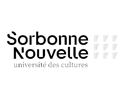Agenda
Groovy Politics: Rancierian reading of live Cuban popular dance music
Le dernier séminaire de CubaRecherche aura lieu le vendredi 17 mai 2019, à l'IHEAL en salle C (RDC) de 14 à 17h.
Nous aurons le plaisir d'écouter Kjetil Klette Boehler, chercheur à l'Institut Norvégien de Recherche Sociale d'Oslo, pour une présentation en espagnol intitulée:
Groovy Politics: Rancierian reading of live Cuban popular dance music
Résumé en anglais :
By drawing on Jacques Rancière’s concept of “the police” and “politics” this paper explores how Cuban popular dance music nurtures and contests revolutionary values in today’s Cuba through unique forms of musical pleasure. In doing so I focus on the recording, performance and discursive construction of Interactivo’s hit “Cubanos por el mundo”, one of the most popular bands in Cuba the last decade, through a combination of textual and musical analysis. To frame my analysis I first analyze the formation of what I term a ‘Cuban police order’ structured around a shared notion of the revolutionary that serves as framework for political discussions and values in the Caribbean island. I then discuss how the song expressed politics by enacting “a wrong”, or not, through in-depth listening in two musical realms; namely the recorded version and a live performance of the song during a mega concert at Plaza Anti-Imperialista held to celebrate revolutionary unity. I draw specific attention to how structures of musical sounds created a space of political expression by adding affects to words and statements through groovy melodies. I then describe how the song nurtured new structures of ‘politics’ and ‘the police’ thanks to its discursive construction by studying blogs and newspaper articles written in response to Carcasses improvisation. Taken together this multi-dimensional Rancière inspired analysis grants more political agency to musical sounds than most existing studies on the politics of music while still considering music’s discursive context.





